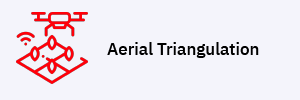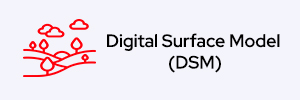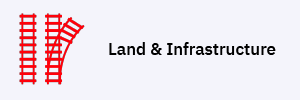Most Recent Trends in Geospatial Market
Most Recent Trends in Geospatial Market'Change is the only constant – though an old adage, is quite relevant in the present context.'
Geospatial Technology
This is commonly known as geomatics and refers to the technology used for visualization, measurement, and analysis of features or phenomena that occur on the earth. It is synonymous with Spatial Information Technology. This include three different technical systems GPS (global positioning systems), GIS (geographical information systems), and RS (remote sensing).
Transformation and Transition
What began with maps and cartography has evolved into advanced technology.In the second half of the twentieth century geospatial technology has been fundamentally and irreversibly transformed by the digital system. Once the digital system came in picture it revolutionized all the traditional aspects. Cartographers saw computer technology as a means for producing traditional analog maps. This was called “automated” or digital cartography. Researchers, government administrators, business managers, earth scientists, military planners and developers, saw computer technology as a tool providing alternatives to printed maps. Satellite remote sensing transformed from coarse spatial resolution to high spatial and temporal resolution. GIS evolved as a never before robust tool for mapping and data interpretation and processing and GPS is reaching out to new heights with most advance and accurate systems.

Choice of Fields for Geospatial Professional
Geospatial technology is flourishing at its best. For the last one or two decades more and more people are opting this field as their first choice of career. A tremendous growth can be seen in all realm of geospatial science. A wide range of potential customers is there in vertical market. Services and products provided by GIS, Remote sensing, GNSS, UAS, Photogrammetry, LiDAR and Mobile mapping system are touching lives in many ways and becoming an essential part of modern life. Professionals at the top of the list are consultant, researcher/Academic, managers, and government officials.

Optimistic Growth of Geospatial Industry
Geospatial industry was always growing with a considerable pace. It was only interrupted in 2008 by global economic crises and its enduring after-effects but after thatthere is a widespread optimism now. As per the recent survey there is a healthy growth in the number of professionals active in agriculture and mining fields. Precision-farming is opening new doors of opportunities. Robotics, which is supporting advancement in agriculture is expected to become a US $45 billion industrywithin the next two decades.
More than 40% of the professionals are planning to invest in at least one of the three systems UASs (or drones), GNSS receivers and GIS software. Between 20% and 30% intend to acquire photogrammetry software, point cloud processing software, total stations, terrestrial laser scanners, mobile mapping systems and/or UAS-Lidar.

UAS (Drone) Technology
This is among the fastest growing technologies of 21st century. From accident reporting to crop monitoring to infrastructure inspections, drones are on the rise. There is a substantial increase in the investments by equipment suppliers. As precision guidance, autonomous operations, high-definition geocoded images and high-volume data processing all improve, drone usage will continue to increase. Large number of professionals are showing their interest in combining UAS and LiDAR.
Summary
Geospatial technologyrefers to the technology used for visualization, measurement, and analysis of features or phenomena that occur on the earth.Geospatial technology has been fundamentally and irreversibly transformed by the digital system. Once the digital system came in picture it revolutionized all the traditional aspects. GIS, Remote sensing, GNSS, UAS, Photogrammetry, LiDAR and Mobile mapping system are touching lives in many ways and becoming a essential part of modern life. Industry is growing with a optimistic approach











.png)



.png)
.png)










.png)










